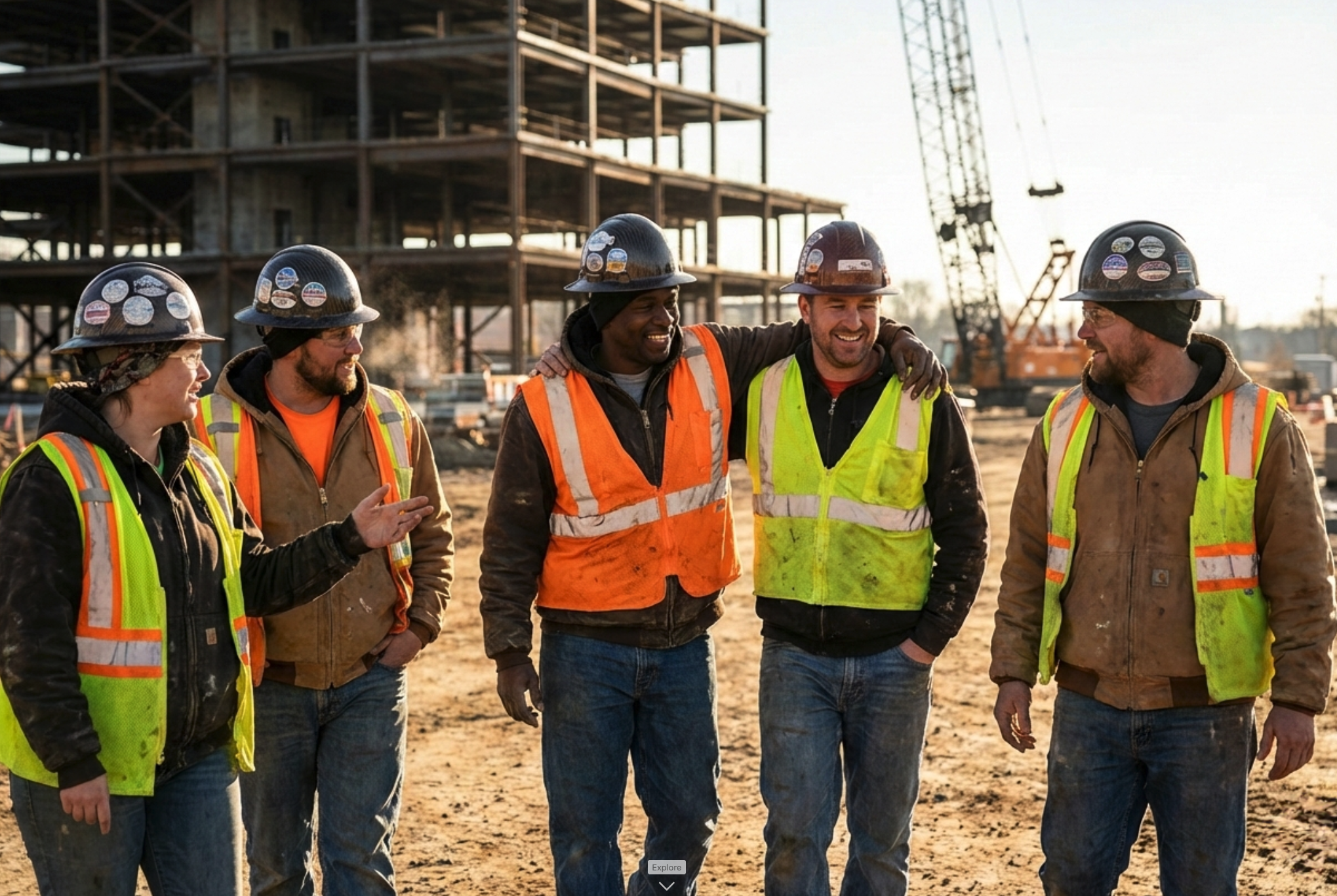
We Can’t Build Anything Worthwhile If We’re Busy Fighting Each Other
I’ve spent my entire career in and around construction and if there’s one thing every jobsite has taught me, it’s this: We are really, really good at fighting.
Unfortunately, I don’t mean a healthy debate. I mean real fighting. The kind where we draw battle lines and weaponize RFIs.
I get it, the stakes in construction aren’t theoretical and somewhere along the way we convinced ourselves that survival requires being on constant defense.
But you can’t build anything meaningful with clenched fists. And in this week where we focus on giving thanks, that truth is becoming harder to ignore.

Why We Still Suck at Managing the Two Most Important Things: Time & Money
There are only two scarcities in life: time and money. And if you mess up one, you’re probably going to lose the other.
Many of us in construction have built careers fighting fires that never should have started. From war rooms full of red dashboards to schedule meetings of wishful thinking, we’ve done everything in our power to hit the deadline in time for opening day.
But only 8.5% of construction projects actually come in on time and on budget. Yup, less than one in ten.
This isn’t just a rough patch; it’s a full-blown industry crisis. Is there any hope for improvement?

Leading Through Chaos: What Construction Can Learn from the Military
It was one of those Mondays. The kind where your phone starts buzzing before your alarm does. By the time I woke up, the daily concrete numbers were off, by a lot, and by lunch we realized there was an entire floor in a multi-story building missing.
In construction, VUCA doesn’t just describe the environment. It describes Monday.
While originally defined by the U.S. Army War College to describe the chaotic conditions of modern warfare, you no longer need a battlefield to feel it. You just need a project under construction.
So how do we lead through it?

The 80/20 Lie: How Construction Tech Fooled Us All (Even Me)
For years, I’ve repeated one of construction tech’s most accepted truths: “Out-of-the-box platforms get you 80% of what you need.”
Turns out…that 80% rule was a lie regardless of how many vendors continue to sell it or executives continue to quote it.
Truth be told, I even continue to write it. Or at least I did. That is, until a week or so ago, when I got called out on it.
So, naturally, I went digging into the data to see what’s what. What I found will likely surprise you (or maybe not).

AI Needs a Foundation: Why Consolidation Still Matters in ConTech
It wasn’t all that long ago that we would carry one device for our phone calls, another for our music and a third for our email. Raise your hand if you remember that? What we didn’t realize at the time was that this monumental moment wasn’t just consolidating devices, it was consolidating data too.
As the saying goes, history repeats itself and we’re here once again. Only this time, the revolution knocking at construction’s door isn’t mobility.
It’s artificial intelligence.
And like before, the organizations that thrive will be the ones that consolidate first.

Specialization Makes Champions (Until It Doesn’t)
There’s a reason specialists exist. These folks don’t become elite by accident, but instead by living inside their craft long enough to see nuances that outsiders never will.
But there’s a dark side to specialization too. Because when all you know is one thing, all your solutions start to look the same.
Specialization without adaptability breeds fragility. However, the goal shouldn’t be to abandon specializing altogether, but rather to balance it.

AI Isn’t a Miracle, But It Will Change Construction
A few weeks ago, I threw a rock at all the AI talk in construction. Saying what a lot of folks were thinking, it seemed to hit a nerve.
The fact is, it hit a nerve because it’s true. We’re throwing around the phrase “artificial intelligence” like it’s capable of doing magic while we still can’t get drawings that don’t contradict themselves.
So, let’s slow down, breathe and figure out what AI actually is, and what it isn’t so that we choose our future wisely. At least, before we just throw a chat-bot at a laborer because it sounds smart.

Enough is Enough: Construction Needs Leaders Who Are Real
I’ll never forget that sunny vacation morning, sipping my coffee out on the deck and enjoying the view. Then my phone rang.
“We need you to do this meeting today.”
Day in and day out, we preach “core values”, but when the rubber hit the road, feeling valued is an afterthought. And that’s the nature of construction, isn’t it? This constant gap between what we say and how we actually behave.
The truth is, construction has a culture problem, one we created ourselves. So, how do we fix it?

Take Back Your Crayons: How Construction Can Unlock Their Creativity
For the first several years of my career, I was that guy that was tucked away in a corner crunching numbers. Design calcs, takeoffs, unit pricing and production rates, you name it. I was an engineer, “perfectly suited” for that role. But inside, I was bored out of my mind.
Somewhere along the way we started being rewarded for precision and punished for risk, so we stopped coloring outside the lines.
It’s a lie that has been spreading for a long time now.

The Data Wars: How We Screwed Up Construction’s Future (and How to Fix It)
I’ll be super honest with you, for a long time I helped build this siloed data monster. While the idea was noble (one platform, one place, one set of data), what I didn’t realize is that we were really just building a single source of control.
And now, almost 15 years later, we’ve institutionalized a massive data imbalance.
It’s become a detriment to every phase of construction, negatively impacting owners and contractors alike. So, how do we fix it?
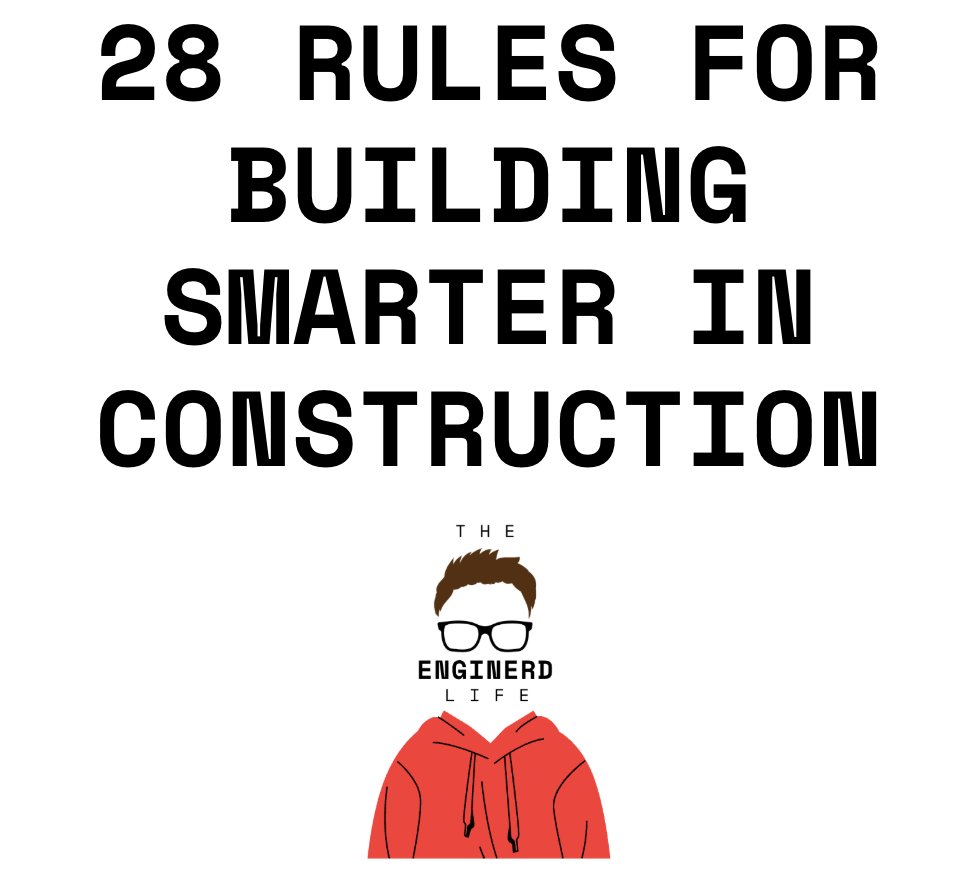
28 Rules for Building Smarter in Construction
I’ll never forget the day one of the area managers looked me dead in the eye and said, “This software is stupid.”
Because in some ways he was right. We had digitized chaos, which is a no-no.
It was a rule I learned the hard way. And after years in construction tech amassing thousands of similar conversations with people in the field I’ve collected 28 rules for building smarter in construction.
They’re part scars, part lessons learned and part rallying cry for the industry I love. Feel free to copy and paste.
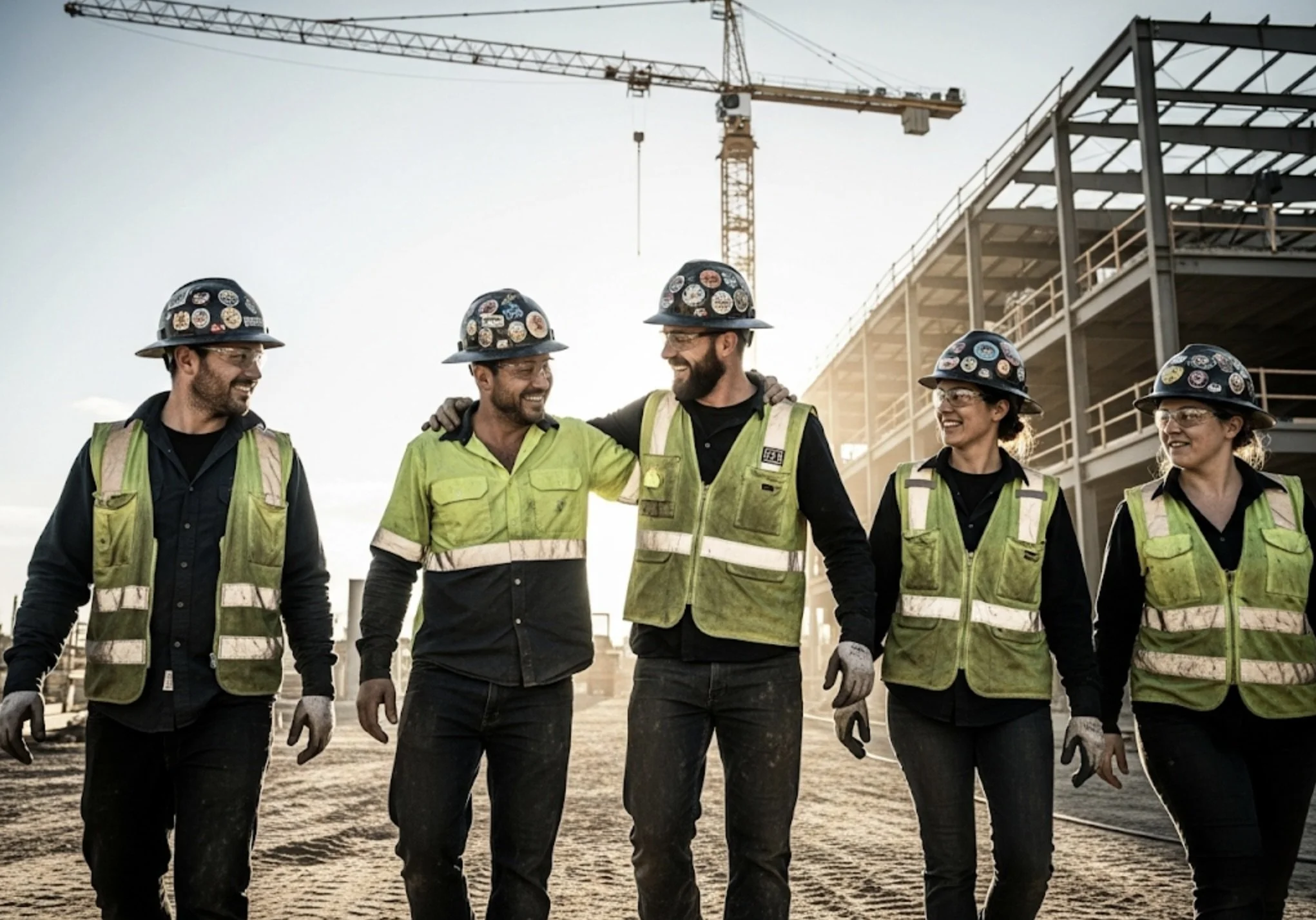
Celebrating Labor Day: A Tribute to the Hands That Built Our World
Few people know where I got my real start in construction. My dad had a bright idea to throw his punk kid on a landscaping crew to teach him the importance of hard work.
So, for two summers of my life, I pushed mowers, built decks, emptied garbage cans and sweated through every layer of clothing I had. There was nothing glamorous (or safe) about it, but those summers taught me something I’ll never forget: what it feels like to put your body on the line, day after day, in the service of work that shapes the community around you.
That’s what Labor Day is all about: celebrating the men and women who sweat, strain and sacrifice to make our built world possible.
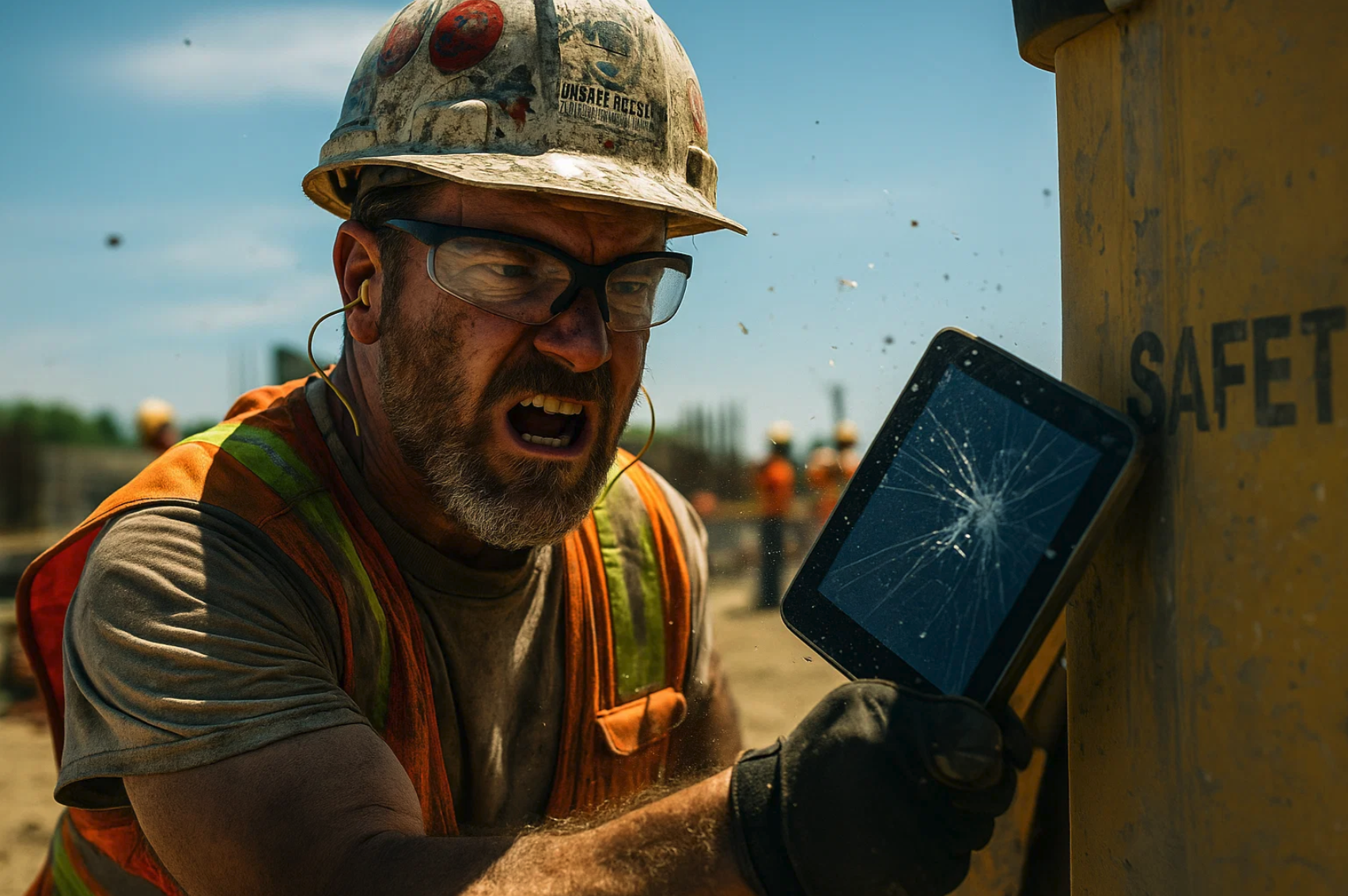
One Skill That Will Save Your Next Digital Transformation: Ask Better Questions
I’ve been on the forefront of a number of transformations. A project kicks off with high hopes, a vendor promises the moon and an executives declare it all “mission critical.”
But then reality sets in.
The tech doesn’t perform as promised, adoption lags and workarounds pile up leaving the field reverting to spreadsheets, sticky notes and side texts. The truth is, most of those failures weren’t caused by bad software.
They were caused by bad questions.
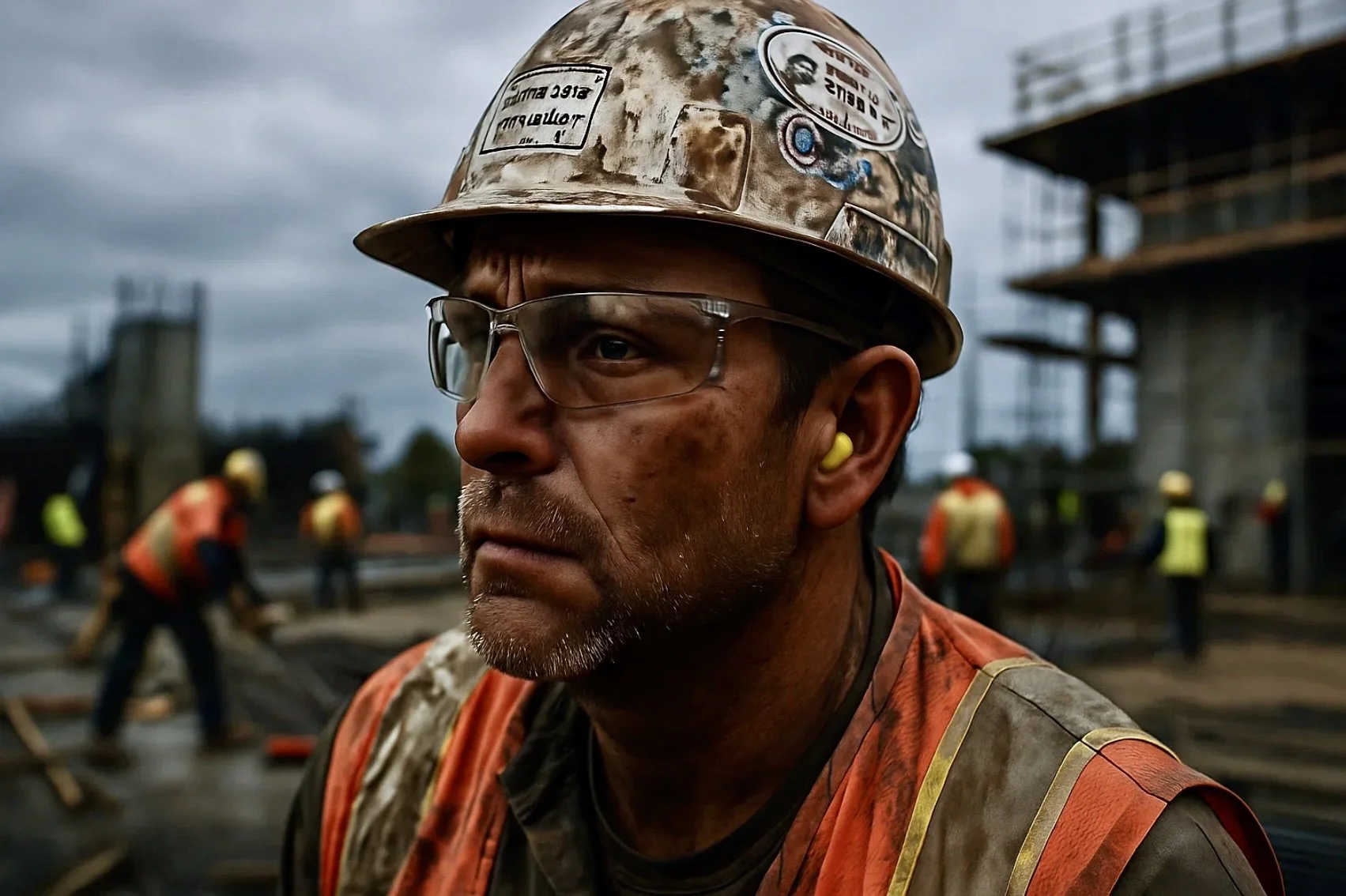
In Construction, Overload Sounds Like “This is Stupid”
There was a moment about a decade ago, one of those moments where it clicked. In the midst of a massive tech overhaul, a superintendent stopped me with, “I’ve got eight different logins, five different interfaces and dozens of manual workarounds.”
That’s when it hit me: it wasn’t that these folks hated technology. They hated drowning in technology.
At the time, I didn’t have a word for it. But now I know it was my first real-life encounter with cognitive load. And in construction, we’ve been quietly letting it chew away at productivity, safety and morale for years.
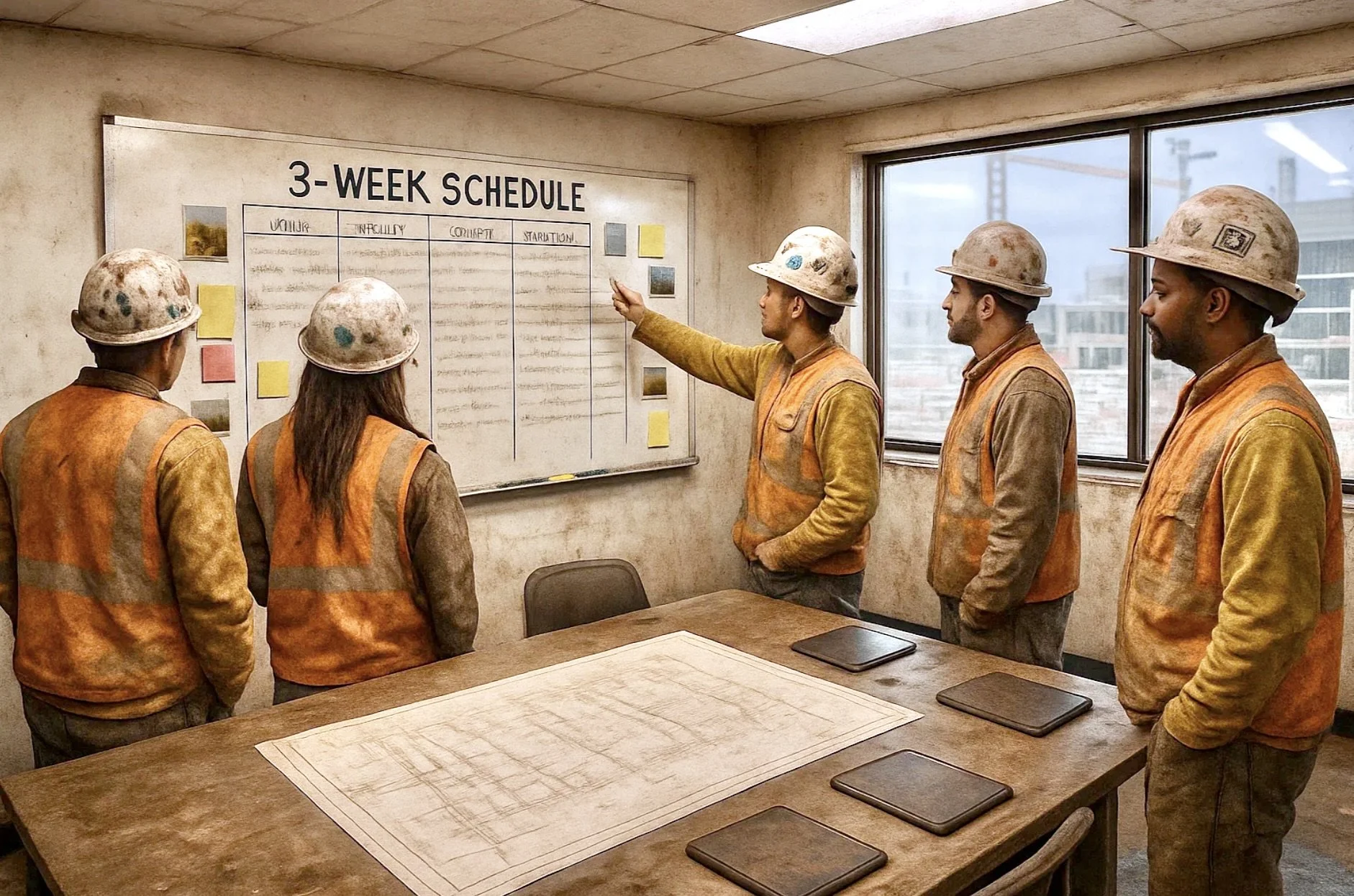
Goals Are Great, But Systems Protect the Margin
Anyone who knows me knows I love a good challenge. Sometimes too much. But despite all the plucky optimism I might attempt to muster chasing after an audacious goal, it will never be enough. You simply don’t succeed because you aimed high.
You succeed because your systems didn’t let you fall.
In construction that fall can happen fast, so how do we avoid it?

The Difference Between Reactive and Proactive Project Management
Let’s have a brutally honest moment here.
We’ve been talking about big data in construction for the better part of a decade now. Every conference, every panel, every sales pitch is all about dashboards, KPIs, predictive insights and “data-driven decisions.”
But here’s the uncomfortable truth: most contractors don’t actually have big data. But it’s not their fault.
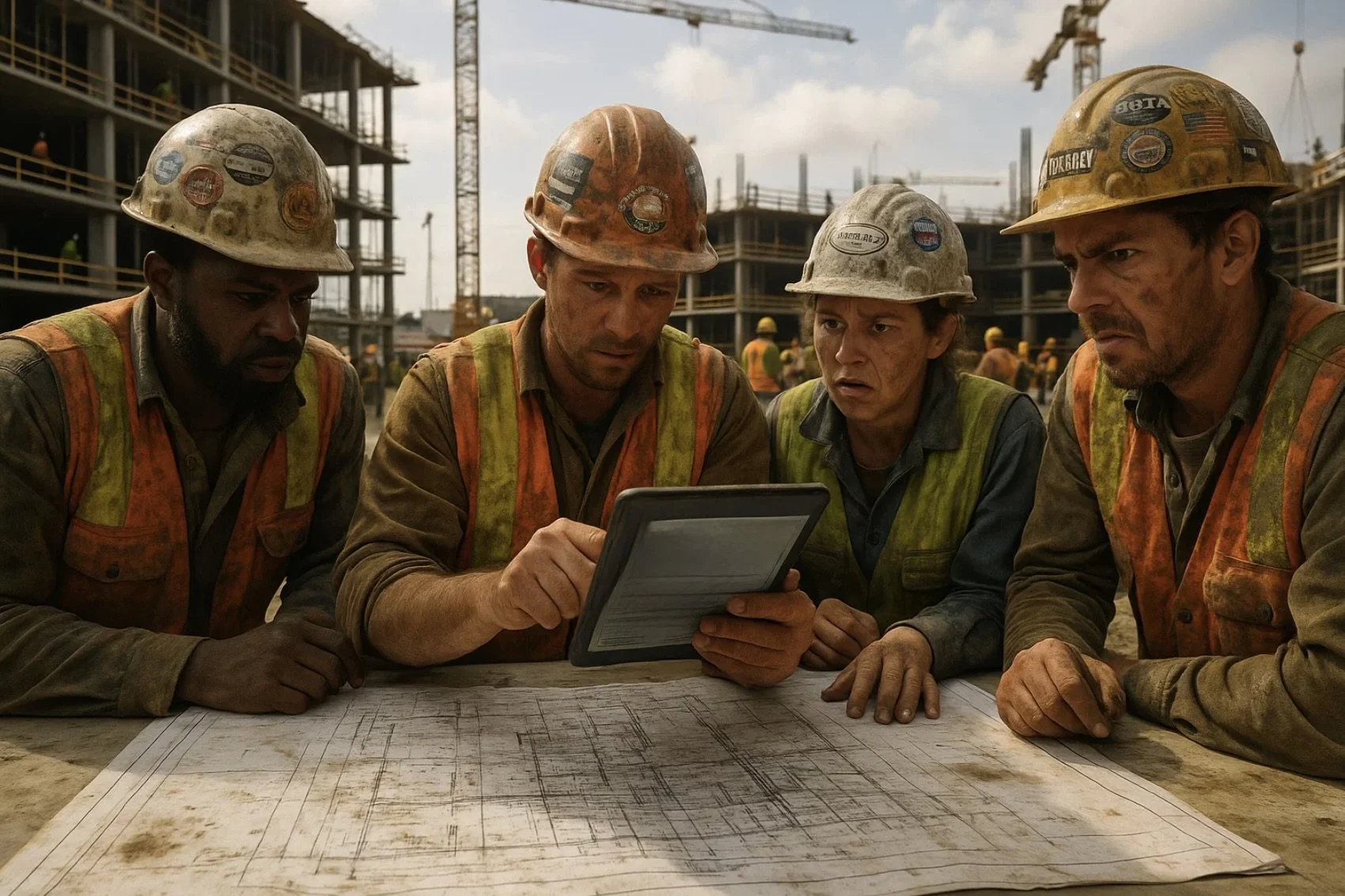
ConTech Doesn’t Replace Workers, It Empowers Them
Let’s get something straight right out of the gate: construction technology is not here to take jobs. Or at least it shouldn’t be. It’s here to empower the people you already have.
But somewhere along the line, tech adoption in construction started getting a bad rap. And many leadership teams (and software vendors) aren’t helping that perception much.
So, how do we set the record straight?

Compete Smarter, Not Harder: Why the Best Don’t Trash Competitors, They Outserve Them
If there’s one thing we can all agree on, it’s this: competition in construction isn’t going anywhere. But here’s where most folks get it wrong: they aim their competitive energy at taking down the other company.
If you want to win in this business, stop obsessing over the competition and start obsessing over your client’s success.
That’s the playbook of a true Contractor of Choice.

The Lie We Keep Telling Ourselves: Why Construction Can’t Afford to Keep Failing the Schedule
Let’s get straight to the point. The fundamental flaw in traditional project management is that it assumes perfect order in a world defined by chaos. The old playbook was built on the idea that if you set a timeline and a budget, and then assign resources with precision, everything will fall into place.
Spoiler alert: it rarely does.


